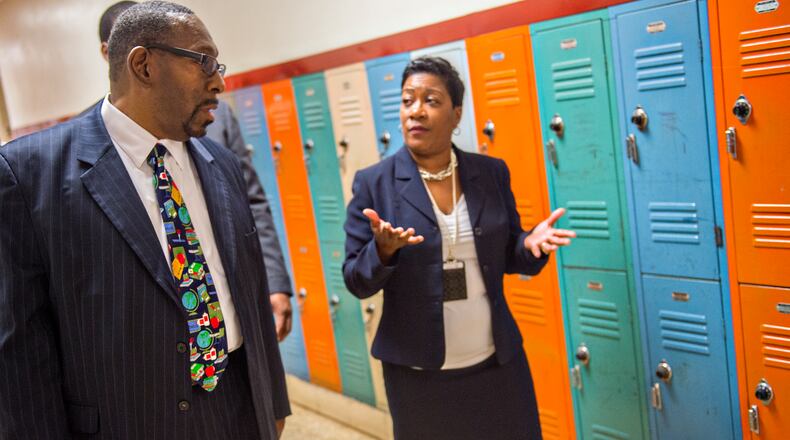DeKalb County is the only metro Atlanta school district with fewer schools than before on Georgia’s updated “chronically failing” list.
Georgia voters may have rejected a constitutional amendment that would have established punitive measures for schools that score poorly on state educational measures, but officials are still updating that list.
DeKalb moved seven schools off the list but added five, for a net decrease of two. It was the only metro Atlanta school district -- and one of only three in the state -- to see a net decrease. It still has more than any district, but it’s also one of the biggest districts in the state.
The five new "chronically failing" DeKalb schools, according to a comparison of the new list and the old, are:
1. Dresden Elementary School,
2. Jolly Elementary School,
3. Mary McLeod Bethune Middle School,
4. Peachcrest Elementary School and
5. Rowland Elementary School.
The DeKalb seven schools that are no longer failing:
1. Allgood Elementary School,
2. Cedar Grove Elementary School,
3. Freedom Middle School,
4. Knollwood Elementary School,
5. Midway Elementary School,
6. Stone Mountain High School and
7. Woodward Elementary School.
The Governor's Office of Student Achievement, which sets the scores on state measures that define failing and assembles the "chronically failing" list, recently reported that the statewide list grew to 153 schools from 127 in 2015, with 13 removed and 48 added. Schools that earn a failing score three years in a row on the College and Career Ready Performance Index are deemed chronic failures.
The list remains relevant despite the outcome of the November referendum because Gov. Nathan Deal and top lawmakers say fixing failing schools remains a priority. They are vowing action during the current legislative session, despite criticism of the state's comparatively "tougher" method of defining academic failure.
About the Author
Keep Reading
The Latest
Featured



